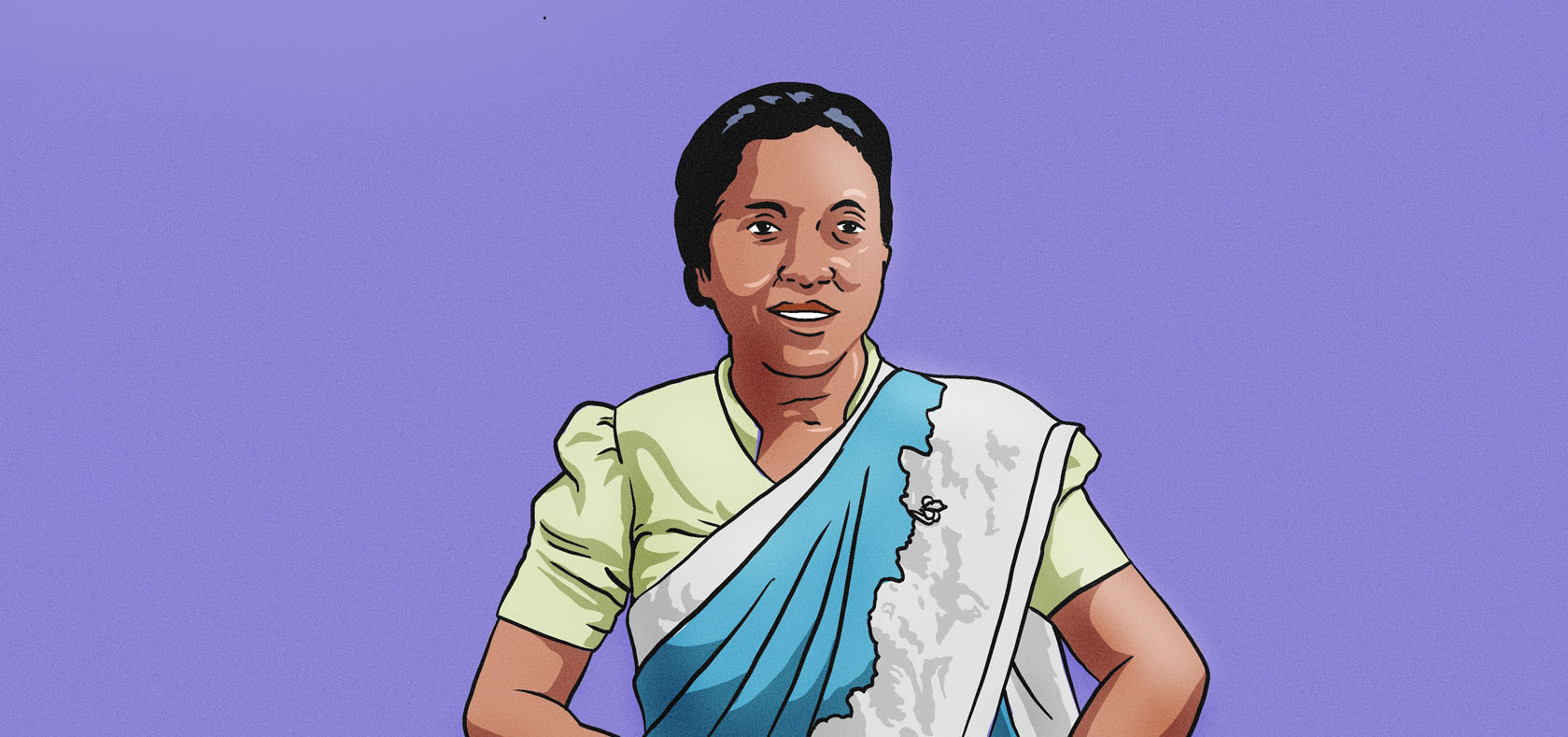In the words of Surekha Edirisinghe: “Women face discrimination not only in their workplaces but also in their homes”
Surekha Edirisinghe is a women’s development officer at the Ampara District Secretariat in Sri Lanka. In October, She attended a series of trainings on women, peace and security conducted by UN Women for more than 130 public sector officials in the Districts of Ampara, Anuradhapura, Colombo and Mannar. The training programmes are part of UN Women’s three-year project titled Implementation of the Women, Peace and Security Agenda in Sri Lanka, funded by the Government of Japan.
Date:
Interviewed by Veenadari Lakshika Jayakody
Edited by Rukaiya Aliasgar


“Women face discrimination not only in their workplaces, but also in their homes. They are expected to work – often in labour-intensive environments – and also take care of their households and families without any concern for their own well-being.
This affects women of all socio-economic backgrounds and has a ripple effect on young girls. For example, when parents go to work, girls [in Ampara] often fall victim to abuse because they don’t have secure homes. The majority of them are also not given the opportunity to go to school and as a result endure physical abuse. This has resulted in an increase in early marriages and teenage pregnancies. It has also caused a culture of fear, shame and guilt. And these girls rarely speak up about these unsafe conditions.
Another common issue faced by women is micro-financing. Before I started working at the Ministry, I was at a finance company. That was when I saw how those women were suffering. These companies feed on women’s desperation and lack of knowledge by withholding important information about taking a loan. The interest rates for these loans are around 56 - 60 per cent. They were taking out loans and after one interest period, they were facing financial difficulties. When they fail to pay their debts, these women are sexually harassed by debt collectors.
These examples show that women are not safe whether at home or outside of their homes. And a lot needs to be done to ensure their safety. However, when we try to organize empowerment programmes for women, if their husbands are not happy, the women are not able to join. This mindset of constant suppression contributes to violence against women.
For officers like myself who work to support survivors of violence, practical knowledge is of utmost importance. The training on women, peace and security conducted by UN Women gave us a better understanding of Sri Lanka’s economic state, how to adapt to challenging times such as the ongoing crisis and to develop innovative programmes - even with limited budget allocations.
We also understood the importance of prevention when it comes to violence against women. And this is something that we don’t pay enough attention to. When we talk about prevention, we have to first look at incorporating gender equality into the education system. This will help change mindsets about patriarchal norms and prevent violence against women in the long term.
It is also vital that more women are at the decision-making level because men can only assume when it comes to women. Women are not victims by nature, but society makes them victims. To overcome this, women should be on the front lines of decision-making, especially in politics.
In order to ensure women’s and girls' safety and security amidst the economic crisis, adopting Sri Lanka’s National Action Plan on women, peace and security is also important because women feel unsafe even in their own homes. With the help of the Women’s Bureau, we hope to work together with women’s organizations to ensure the safety of all women, and also ensure that women are economically independent to stand on their own two feet, which can at times help in escaping violence”.
As part of this project, UN Women has provided technical assistance to formulate and validate Sri Lanka’s first-ever National Action Plan on Women, Peace and Security which is expected to be adopted by the Government. The National Action Plan aims to respond to the needs and priorities of women affected by conflict and crises, and highlights the importance of women’s equal participation in maintaining peace and security. It further aims to address structural inequalities that impede gender equality in the country.
The training programmes for public sector officials are in support of its implementation. In-light of this, Edirisinghe speaks about various forms of violence against women and girls in the country and the need to implement policies to ensure their safety.